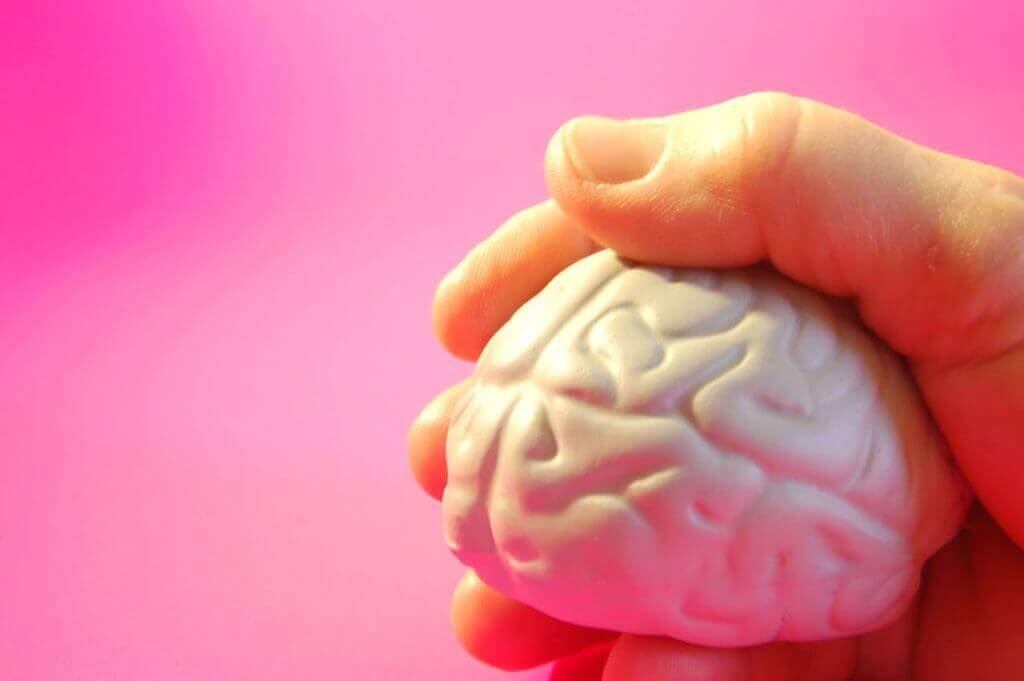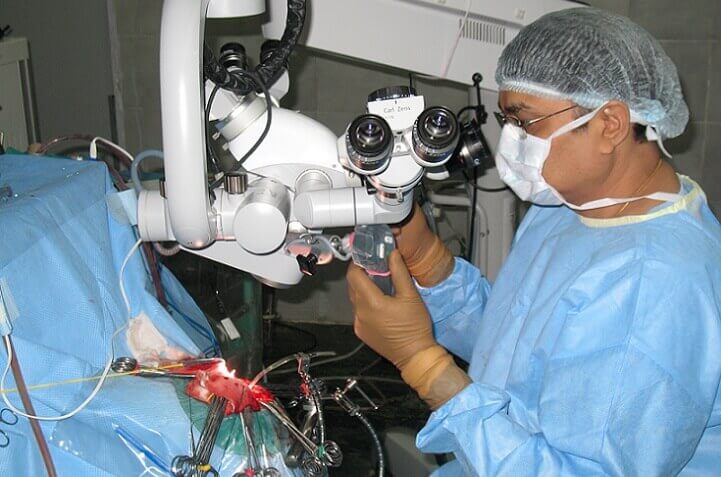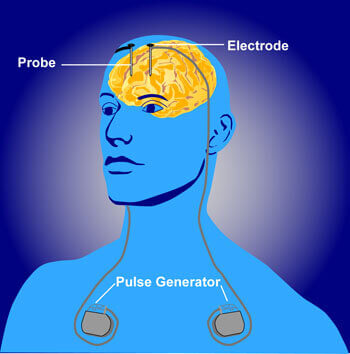
Epilepsy is defined as the disorder of brain which leads to recurring episodes of superfluous seizures. Till date, there is no permanent cure established for epilepsy.
However, the condition can be managed and the symptoms can be controlled with certain treatment approaches. In most cases, epilepsy is treated by medicines or surgery wherein medicines happen to be more common.
If you’ve been diagnosed with epilepsy, there are several treatment options that you can choose from. These include medicines, surgery, special diet or implant that mainly works on the nerves.
The epilepsy treatment, be it medication, surgery or any other form, works with the objective of establishing control and removing seizures. In certain cases, despite the control, people tend to experience a seizure and this is termed as breakthrough seizure.
Talking of the medications, there exist a range of medications for treating epilepsy, owing to which choosing the most effective one often proves to be a challenging task. Some of the epilepsy drugs have been in use for decades while a few have been developed lately. Also, each of the epilepsy drug comes with its share of pros and cons. Plus, the side effects and dosage schedule also varies from drug to drug.
Most of the epilepsy cases are treated with the help of medication. Though these drugs don’t help in curing the condition, they help in managing the symptoms and seizures.
As per a study, around 80% of people suffering from epilepsy get their seizures managed through medication, for a specific period of time. Epilepsy cases where medication brings out no satisfactory results, doctors recommend other treatment options such as surgery. Even for people who take medication for epilepsy, the results may not be as expected.

Your healthcare provider will recommend epilepsy medications like antiepileptic drugs or (AEDs), also known by the names; anticonvulsants or antiseizure drugs. Often they are even called the seizure drugs. These epilepsy medications help in managing the condition by abolishing the defective signaling which happens in the brain, the lead cause of seizures. If you have been advised to take medications, then you must take them as directed and even if you don’t have any symptoms, you should continue taking them.
In some cases, people with epilepsy are advised to take the medications all through their life.
There needs to be a consistent level of epilepsy medicine in the blood which is helpful in preventing seizures. In case you happen to miss a dose, you must make it a point to stop the medication, get the medication changed or else you may experience breakthrough seizures. Moreover, you will have to get your blood tests done regularly so as to monitor epilepsy medicine level in the blood.
The medications for epilepsy are given with the following objectives:
As there are various medicines available for epilepsy, choosing the one which will work more effectively depends on various factors. Your doctor will evaluate these factors before recommending the ideal treatment mode. Some of the factors include:
Epilepsy type: The first factor taken into consideration for choosing the medication type is the form of epilepsy. Each epilepsy type will cause a distinct form of seizure. In order to recommend the medicine that can be effective in managing the seizures, knowing the epilepsy type is very crucial. This is because all medicines will not have the required effect on seizures and the wrong type can even worsen the condition. In case your epilepsy type is not detected, then you will be prescribed “broad-spectrum” epilepsy medication, which means the medicine can work on a range of seizures.
Pregnancy: If you are suffering from epilepsy and desire to have a child, you can go ahead with normal pregnancy, provided you take care of some crucial things. You should first speak to your doctor and consult about your plans of pregnancy. You will have to choose safe medication, not just for seizure control but also for the health of your baby. Some of the epilepsy medicines can harm the unborn baby as they can interfere with baby’s growth and development in the womb, or can even lead to birth defects. Seizures during pregnancy subject you to a high risk of oxygen deficiency for the fetus, trauma with regard to falling and miscarriage. You will have to be very careful with the medication so that it doesn’t cause any harm to your pregnancy and even helps in keeping the seizures in control.
Other medical problems: Certain medical conditions that you suffer from can also rule the type of medication you will have to take for epilepsy. For instance, in the case of liver or kidney disease, the levels of epilepsy medicine can get altered in the blood. With certain medicines, your doctor will even consider the risk of osteoporosis because some epilepsy medicines are known to lead to osteoporosis. In such cases, you will even be advised to take vitamin D supplement along with the epilepsy medicine. Menopause and other types of hormonal changes can also have an impact on the type of epilepsy medicine you choose.
Other prescribed medicines you take: If you are already taking any prescribed medicines, it can also have an effect on your choice of epilepsy medicine. Certain drugs are known to affect the working of epilepsy medication in the body and even the medicines you have been already taking can get affected by the epilepsy drugs. If you are on birth control pills then they may not work effectively if you start taking certain epilepsy medications. No matter what medicine, herb or supplement you are taking, you must make it a point to inform your doctor before starting the epilepsy drugs.
Your convenience: Most of the epilepsy medicines are taken orally. And you may be required to take them several times in a day, depending on what type of drug you are taking. You will have to speak to your doctor to know when you’ll be required to take the medicines and how will it impact your lifestyle. Moreover, in some cases, epilepsy drug can even be given through injections. And is mostly done when there is a need to control the seizures immediately.
Side effects: Epilepsy medicines cause a range of side effects, such as nausea, fatigue, slowed or “foggy” thinking, unsteadiness, and skin reactions. Some people with epilepsy even experience higher risk of mood disorders and suicidal tendency. These side effects stand to be more common in the case of older adults suffering from epilepsy. Before prescribing you the epilepsy drug, your doctor will check as to which side effect you will be able to bear. Your doctor will make efforts to determine a medicine that causes no side effects and help eliminate your seizures. But this will not be a possibility in every case.
Cost of medicine: Another deciding factor with regard to the medicine type you choose happens to be the cost of the drug. Epilepsy drugs that are older happen to be less expensive than the new ones. Certain brands of epilepsy drugs are available in generic form, which are cheaper.
When detected with epilepsy, your doctor will first try to find out the best medicine for your condition. Medicines usually work for nearly 7 out of 10 people suffering from epilepsy.
However, not all medicines succeed in controlling the seizure. If the prescribed medicine is not showing any desired result, then your doctor will change the medicine or its dose to see if there is any improvement.
Despite the changes, the epilepsy medication is not able to manage or control the seizures, then your doctor will recommend either a surgery or implanted device known as vagus nerve stimulation. In case of kids with epilepsy, doctor may recommend a special epilepsy diet to manage the seizures.
Epilepsy medicines are known to cause several side effects, which can be mild or severe. Some of the mild side effects of the medication would include:
As stated, the medicines can even cause some severe side effects, which include:
You can stop your seizure medication if you notice considerable improvement in your condition. If you have not had any seizure attack in at least 2-4 years, you can speak to your doctor and slowly get off the medication.
However, it should only be done under the supervision and help of doctor. You shouldn’t stop taking the medicines on your own. Your doctor will monitor your progress and gradually help you stop the prescription. This should only be done with your doctor’s advice and help.
Certain seizure types only occur in children and teenagers. If you happen to be a young adult then you may be allowed to stop the medication.
If the seizures continue to recur even after taking medication, you must speak to your doctor and ask the following questions:
Is there any new drug that can help?
Is there a need for doing more tests?
Is the epilepsy type untreatable?
As said, most epilepsy types will be treated with medication. However, if medicines fail to offer the desired result, then your doctor will recommend other treatment forms. Let us have a look at the other treatment options used instead of medications.
Ketogenic Diet
A Keto diet is rich in fats and low in carbohydrates, you will be advised this diet based on the type of seizure you have. However, you should avoid trying it without any medical supervision or assistance.

You should take help from your doctor and nutritionist to decide if Ketogenic diet will be helpful in managing the seizures. In general, the ketogenic diet is recommended for children when medications fail in controlling the seizures. As per studies, the keto diet can even be recommended to adults as it is known to manage the seizures in adults.
Like the epilepsy medications, ketogenic diet also has its share of side effects like sluggishness. In the later stage, the side effects may include:
Nerve Stimulation
It is another treatment option and has mainly two types, which are:
Vagus Nerve Stimulation (VNS): A vagus nerve stimulator acts like a pacemaker. The stimulator is placed in your chest surgically. It then works by delivering short bursts of energy to your brain. According to scientists, vagus nerve stimulator reduces seizures by nearly 40% to 50%. However, the VNS doesn’t work in all cases and even if you are recommended vagus nerve stimulator, you may have to continue taking the medication but in a low dose.
Responsive Neurostimulation Device (RNS): RNS treatment process has been approved by the FDA for treating adults suffering from partial seizures. This process has a small neurostimulator which is implanted under your scalp, within the skull. The neurostimulator is then connected electrodes, placed at seizures place of origination, within the brain or brain’s surface. As the RNS device detects unusual electrical activity in the suspected area, it delivers electrical stimulation for normalizing the brain activity before the seizure symptoms begin.
Most of the cases of epilepsy are treated with the help of medications. Surgery is very rare and is only done in cases where the medications fail to control the seizures even after a trial of 2 or 3 medications, generally in a period of two years. If there is no improvement, then a re-evaluation will be recommended.

The re-evaluation results make it clear if surgery will be required. Prior to considering surgery as the option, an extensive presurgical exam will be performed. This evaluation, carried out to make sure that the surgery will help in improving the seizures. Moreover, it also makes sure that the surgical process will cause no damage to the vital functions like the speech and memory. During the evaluation process, prolonged EEG-video monitoring and other tests are done in order to identify the exact location of the damaged brain cells that are causing the seizures. Determining the damaged cell locations helps in knowing if the surgery will be feasible and if not, what techniques can be used to control the problem.
Surgery will be mostly referred for treating partial epilepsy, as it will involve operating just one area of the brain. During the surgical process, brain’s area triggering the seizures will be removed. Post surgery, some patients will recover from the problem completely while in some cases, the seizure will be managed in a better way. However, in some cases, patients may require additional surgery.
Certain surgical approaches are kept reserved for particular types of epilepsy and are mostly performed in young children. One method calls for the removal of a large part of brain’s one side known as hemispherectomy; while the other method involves cutting the nerve fibers that connect the two sides of your brain; this is known as corpus callosotomy.
In cases where the surgery and even diet fails to give the results, deep brain stimulation (DBS) therapy is recommended. It can be used if the brain part where seizures originate from can’t be operated or removed. In such cases, the DBS therapy works with the objective of reducing the seizures but it will not inevitably cure epilepsy. DBS therapy calls for implanting the electrodes into particular areas of your brain, which are then stimulated with the help of small, regular electrical impulses.

This therapy helps in controlling the surplus electrical activity in your brain using regular electrical impulses for cutting down the frequency as well as the severity of seizures. In certain cases, the DBS therapy reduces the frequency of seizures, in some it can reduce the seizure while for some, the therapy will have no effect at all.
DBS therapy effects take time to surface, they may take nearly 2 years for controlling the seizures. The therapy is always used alongside anti-epileptic drugs (AEDs). And if the treatment shows positive results then the dosage of AED can be reduced over time.
The therapy contains a battery-powered device known as the neurostimulator, which sends electrical impulses to your brain. These electrical impulses travel to the electrodes, implanted in the anterior nucleus of thalamus (ANT), brain’s part involved in the spread of seizures.
This therapy may not work in all cases and if there occurs no improvement in the seizure frequency even after two years, your doctor will turn the stimulator off or remove the battery system, but the electrodes will be intact.
If you’ve had more than 1 unwarranted seizure, your treatment approach would include an anticonvulsant. In case of single unwarranted seizure, you will have to practice the standard care which includes avoidance of general precipitants like sleep deprivation and alcohol. Anticonvulsants will not be recommended unless you are at the risk of seizure recurrence.
Recurrence risk in 2 years, post first unprovoked seizure happens to be 15-70%. The majo risk factors that increase the risk of recurrence include the abnormal brain Magnetic Resonance Image (MRI) study, abnormal electroencephalogram (EEG) and partial-onset seizure.
The nerve disorder that occurs due to epilepsy can result in making you feel at loss of control over your body. As it progresses, your life become difficult to manage that have an impact on the quality of life.
The best way to gain that control back is to follow the three vital step, which include: working in partnership with your healthcare provider, keeping the track of your health which includes noting the time when you have seizures, the frequency of it and the side effects and the last is asking questions – the more openly you seek details about the condition, you will be able to take care of yourself in a better way.
Using the different resources available for treating epilepsy, you can manage the quality of your life and live a productive life.
At Shalby Hospitals, our neuroscience department is well-equipped with resources to facilitate the treatment of epilepsy. Our expert doctors can design the most effective treatment approach based on your symptoms and overall health.
Moreover, even for the surgical process of treating epilepsy, our team of expert neurologists provide great care. We bring to you a cost-effective epilepsy surgery treatment. Our expert neurologists give in their best to provide you with the best possible results so as to improve your quality of living.
A young lady, Renu Somani from Udaipur, Rajasthan, was experiencing an agonizing facial pain. Initially, she attributed it to a troublesome tooth and underwent tooth extraction in search of relief. However, the pain persisted and became more severe and tormenting like electric...
Age has a curious way of showing up. Sometimes, it bags our attention in the form of a disease or disorder. Parkinson's is one of those diseases that shows up with advancing age. It is a neurological disorder that affects body movements....
Of all the vital systems in the human body, the nervous system that regulates and coordinates the different body activities happens to be a highly intricate system. The nervous system comprises of two major divisions: Central Nervous System - this consists the...